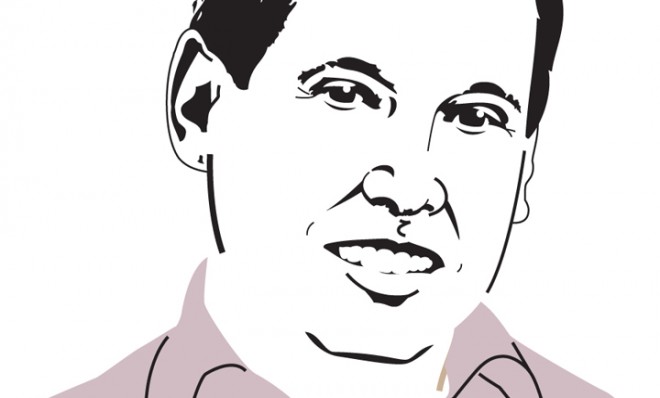How Obama blew it on the sequester — and how he's fixing it
The swiftest cure for arrogance is a drop in the polls


From a numerical standpoint, the sequester isn't such a big deal: $85 billion in cuts between now and September 30, and — unless our let's-blame-the-other-guy politicians can figure a way out — $1.1 trillion more over the next decade.
Big money? In absolute terms, you betcha. In relative terms? Not at all.
Even if all 10 years of sequester cuts were to go through, it would be about one-seventh of what Americans lost when the housing bubble burst in 2006. It's also a fraction of the trillions lost when the stock market crashed 57 percent from 2007 to 2009, crushing tens of millions of retirement accounts.
The Week
Escape your echo chamber. Get the facts behind the news, plus analysis from multiple perspectives.

Sign up for The Week's Free Newsletters
From our morning news briefing to a weekly Good News Newsletter, get the best of The Week delivered directly to your inbox.
From our morning news briefing to a weekly Good News Newsletter, get the best of The Week delivered directly to your inbox.
So compared with that one-two punch we took during the Great Recession — arguably the worst three years we have endured since the Great Depression — the sequester doesn't seem nearly as bad. And that's why cries that the sky is falling are landing on deaf ears. $85 billion? $1.1 trillion more over a decade? We can do that standing on our head.
As a result of this fear-mongering, spending is not the only thing falling in Washington these days. President Obama's job approval numbers have fallen over the last week to their lowest levels since he was re-elected. The honeymoon, if there was one this time around, is over.
In the White House briefing room on Friday, the president didn't seem to think he would pay a political price for this. He was relaxed and feisty, laughing at times and looking like a guy who just won 51 percent of the vote, 332 electoral votes — and knowing that just 22 percent of Americans now identify themselves as Republicans. It was a confident show, and the president told us that public opinion on the sequester was on his side. It appears to be, but not by much. A CBS-New York Times poll out Monday said 38 percent of Americans blame Republicans — but 33 percent blame the White House. That's not exactly a wide margin.
Did the president miscalculate? Jay Carney, the president's salesman, has dodged that question, instead pivoting quickly to his boss' position, which, he pointed out, was John Boehner's position as recently as December: that revenue could be raised by closing tax loopholes that benefit the rich.
A free daily email with the biggest news stories of the day – and the best features from TheWeek.com
This is true. Boehner did support that in December. But that was before 85 House Republicans, including Paul Ryan, gave the president what he wanted: $620 billion in taxes by jacking up rates on the top 2 percent of earners. Boehner's message to Obama now: That's all you get.
The president, who claims he doesn't pay attention to polls, knows he has taken a hit with the public and has since made an about face. He is now on a charm offensive with Republicans. In a series of chats with lawmakers, he renewed his willingness to cut entitlements — Medicare and Social Security — if the Republicans would also give up something near and dear to them: those tax loopholes that they were in favor of closing only 10 weeks ago. More than a few Republicans have been receptive, and — don't hold your breath — there are rumblings that some kind of bipartisan compromise could be reached. Wednesday night, the president had dinner at a local hotel with a dozen Senate Republicans, he's having lunch today with Paul Ryan, and next week, he's having lunch with still more GOPers on Capitol Hill.
This kind of outreach seemed unimaginable just two weeks ago. The president and his spokesman won't admit it, but they miscalculated and are now adjusting. Here's a political maxim: The swiftest cure for arrogance is a drop in the polls.
The other mistake Obama made: thinking that Americans would oppose spending cuts. They don't. An ABC poll says that by 61-33 margin, Americans want the federal budget cut. And here's the part that plays directly into Republican hands: By "nearly an identical margin," ABC says, Americans oppose the sequester cuts to the military.
If that's the way Americans feel, then Republicans are on the right side of public opinion for a change. This explains Obama's sudden decision to play nice.
And the president's willingness to trim entitlements — if Republicans agree to close tax loopholes — won't win him many brownie points with Americans, either. Poll after poll shows large and steady opposition to cutting Medicare or Social Security, despite the fact that entitlements gobble up the biggest share of the federal budget.
Still, most Americans continue to favor Obama's "balanced approach" to reduce the deficit: a combination of cuts and taxes. They don't like the GOP's all-cuts approach. On this very important point, the Republicans remain out of touch; perhaps they could do a better job of reading the polls as well.
It's only a matter of time before Republicans acknowledge that they also have to change course. They're happy to let the sequester continue, knowing that Obama has been hurt, and may be hurt further, as the cuts begin to bite. But over the long haul, if they're serious about the one thing they care about above all — cutting spending — then they'll have to go along with higher taxes. Period. There's no way, simply no way, the president will ever put entitlements on the table without the GOP giving in on more revenues. The GOP is winning the sequester battle. But unless they give in on more revenues, they'll lose the bigger budget war.
An award-winning member of the White House press corps, Paul Brandus founded WestWingReports.com (@WestWingReport) and provides reports for media outlets around the United States and overseas. His career spans network television, Wall Street, and several years as a foreign correspondent based in Moscow, where he covered the collapse of the Soviet Union for NBC Radio and the award-winning business and economics program Marketplace. He has traveled to 53 countries on five continents and has reported from, among other places, Iraq, Chechnya, China, and Guantanamo Bay, Cuba.
-
 Why quitting your job is so difficult in Japan
Why quitting your job is so difficult in JapanUnder the Radar Reluctance to change job and rise of ‘proxy quitters’ is a reaction to Japan’s ‘rigid’ labour market – but there are signs of change
-
 Gavin Newsom and Dr. Oz feud over fraud allegations
Gavin Newsom and Dr. Oz feud over fraud allegationsIn the Spotlight Newsom called Oz’s behavior ‘baseless and racist’
-
 ‘Admin night’: the TikTok trend turning paperwork into a party
‘Admin night’: the TikTok trend turning paperwork into a partyThe Explainer Grab your friends and make a night of tackling the most boring tasks
-
 The billionaires’ wealth tax: a catastrophe for California?
The billionaires’ wealth tax: a catastrophe for California?Talking Point Peter Thiel and Larry Page preparing to change state residency
-
 Bari Weiss’ ‘60 Minutes’ scandal is about more than one report
Bari Weiss’ ‘60 Minutes’ scandal is about more than one reportIN THE SPOTLIGHT By blocking an approved segment on a controversial prison holding US deportees in El Salvador, the editor-in-chief of CBS News has become the main story
-
 Has Zohran Mamdani shown the Democrats how to win again?
Has Zohran Mamdani shown the Democrats how to win again?Today’s Big Question New York City mayoral election touted as victory for left-wing populists but moderate centrist wins elsewhere present more complex path for Democratic Party
-
 Millions turn out for anti-Trump ‘No Kings’ rallies
Millions turn out for anti-Trump ‘No Kings’ ralliesSpeed Read An estimated 7 million people participated, 2 million more than at the first ‘No Kings’ protest in June
-
 Ghislaine Maxwell: angling for a Trump pardon
Ghislaine Maxwell: angling for a Trump pardonTalking Point Convicted sex trafficker's testimony could shed new light on president's links to Jeffrey Epstein
-
 The last words and final moments of 40 presidents
The last words and final moments of 40 presidentsThe Explainer Some are eloquent quotes worthy of the holders of the highest office in the nation, and others... aren't
-
 The JFK files: the truth at last?
The JFK files: the truth at last?In The Spotlight More than 64,000 previously classified documents relating the 1963 assassination of John F. Kennedy have been released by the Trump administration
-
 'Seriously, not literally': how should the world take Donald Trump?
'Seriously, not literally': how should the world take Donald Trump?Today's big question White House rhetoric and reality look likely to become increasingly blurred
